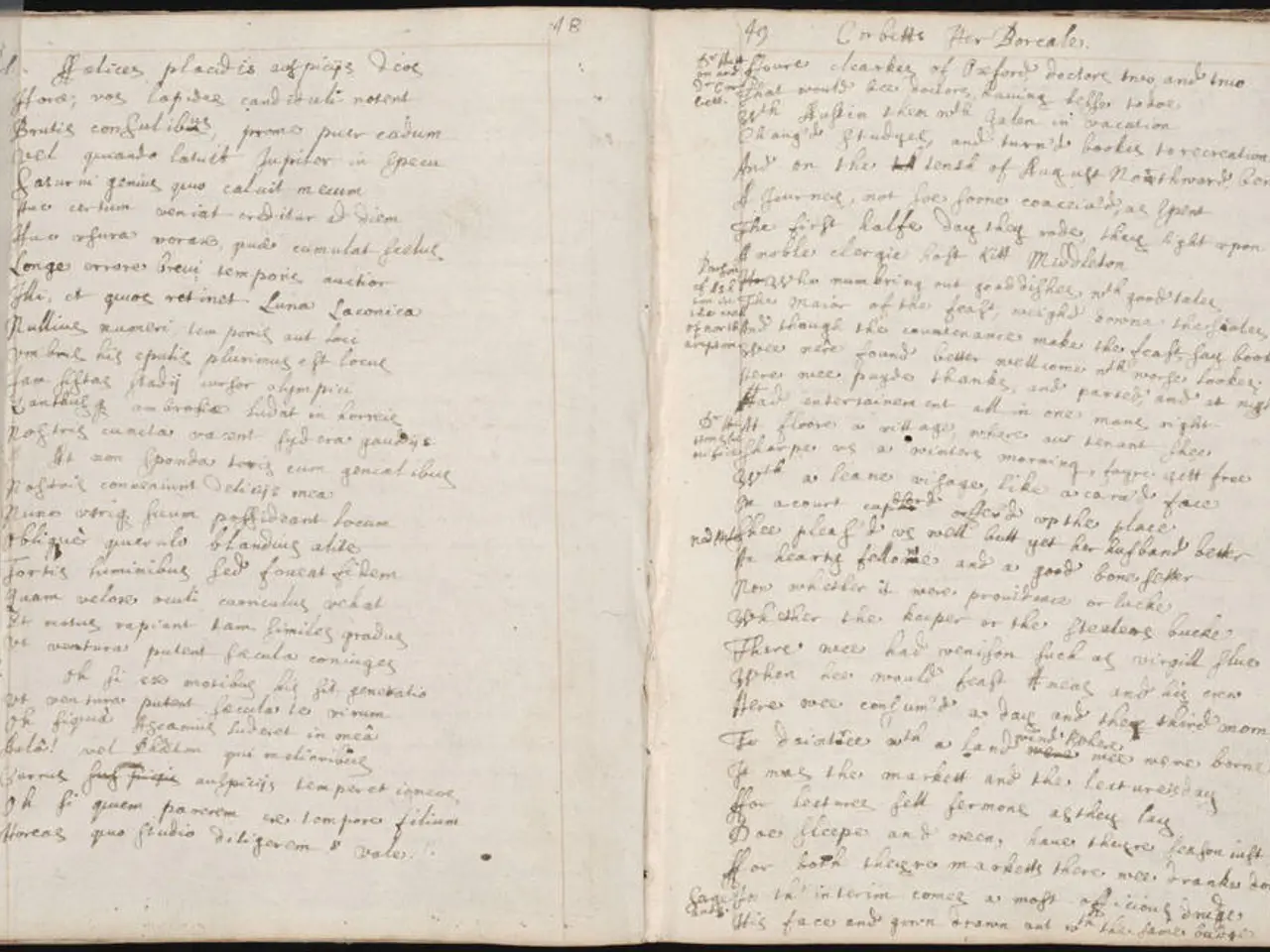Write a New Tale: Simply, Pen It Down
In the world of writing, consistency is king. According to recent findings, writing regularly enhances productivity, nurtures creative thought, and reduces self-doubt, proving to be a more effective approach than binge-writing.
Consistent writing sessions keep writers connected to their work daily, making progress steady and reducing the overwhelming pressure that comes with last-minute, intense binge-writing sessions. This steady engagement improves flow and creative insight because the mind stays familiar with the material, allowing ideas to be explored gradually rather than forced during a "writing sprint" after days or weeks of disconnect.
On the other hand, binge-writing can lead to feelings of stupefaction, as seen when writers wait all week to write and then struggle to start, resulting in less productive time and more frustration.
Consistent writing also builds a positive habit and better emotional relationship with a project, which helps to reduce self-doubt. When writing is infrequent and deadline-driven, negative feelings such as guilt, shame, and comparison often mount, making it harder to start or maintain creative momentum. In contrast, routine writing aligned with personal rhythms can create positive associations with writing, turning it into a sustainable habit instead of a source of anxiety.
Moreover, because consistent writing integrates incremental thinking and reflection, it supports creative development better than the forced intensity of binge-writing. The sustained connection to your text allows for constant refinement and deeper engagement with your ideas, which can be lost when writing in sporadic, long blocks after mental buildup or avoidance periods.
Life's bumps in the road should not deter writers from continuing their craft. Even in the face of personal situations that increase responsibilities and emotional stress, it's essential to maintain the writing routine. Writing can serve as a place to live for someone who has lost their homeland, according to Theodor Adorno.
In practice, the speaker wrote at least 6 days a week for 15 minutes a day to stay connected to their work. In 11 weeks, including a wrist surgery, they wrote 55 pages of their current screenplay in just 15 minutes a day. This dedication demonstrates the power of consistency, as even a small amount of time dedicated daily can lead to significant progress.
However, inertia, a tendency to remain unchanged, can be both an ally and a foe in writing regularly. A small break from writing can lead to a quick increase in inner resistance and a return to procrastination. To counteract this, it's important to have a plan for returning to writing after resting, to avoid being caught off guard by resistance.
In physics terms, inertia means a property of matter that continues in its existing state of rest or uniform motion in a straight line, unless that state is changed by an external force. Similarly, the inertia of writing can be overcome with consistent effort and a commitment to the craft.
Steven Pressfield suggests that athletes play hurt and warriors fight scared, implying that one should keep writing even during personal crises. Writing in the face of personal obstacles and emotional challenges can be confidence-building and inspiring. Greater personal difficulties can challenge a writer's commitment to writing, but they can also serve as motivation to continue.
In conclusion, consistent writing optimizes productivity through sustained engagement, fosters creative flow, and decreases self-doubt by making writing a regular, manageable, and psychologically supportive practice. Unlike binge-writing, which often leads to emotional burnout and cognitive blocks, consistent writing proves to be a more effective and sustainable approach to the craft of writing.
Consistent writing, such as daily sessions, can lead to writing a screenplay over several weeks, even with minor setbacks. For instance, writing 15 minutes a day for 6 days a week resulted in 55 pages of a screenplay in 11 weeks, despite a wrist surgery.
Regular writing also enhances productivity and creativity by allowing ideas to be explored gradually, alleviating the mental pressure buildup that can occur with binge-writing.
In contrast to binge-writing, consistency in writing builds a positive emotional relationship with a project and supports creative development by integrating incremental thinking and reflection.




